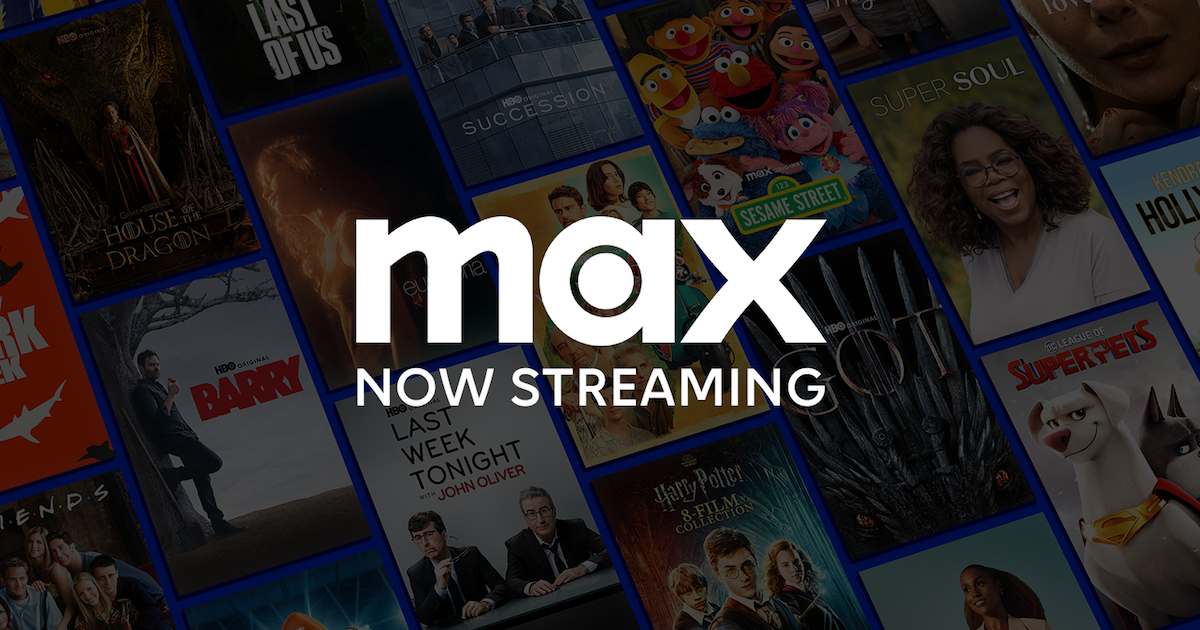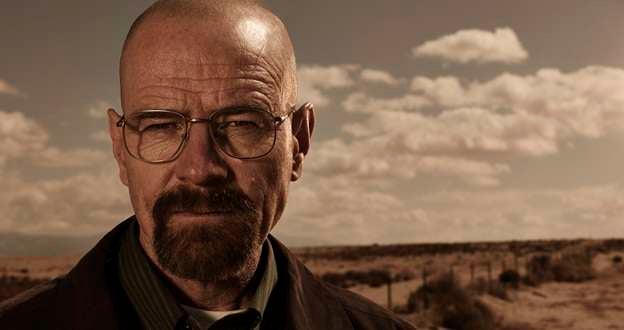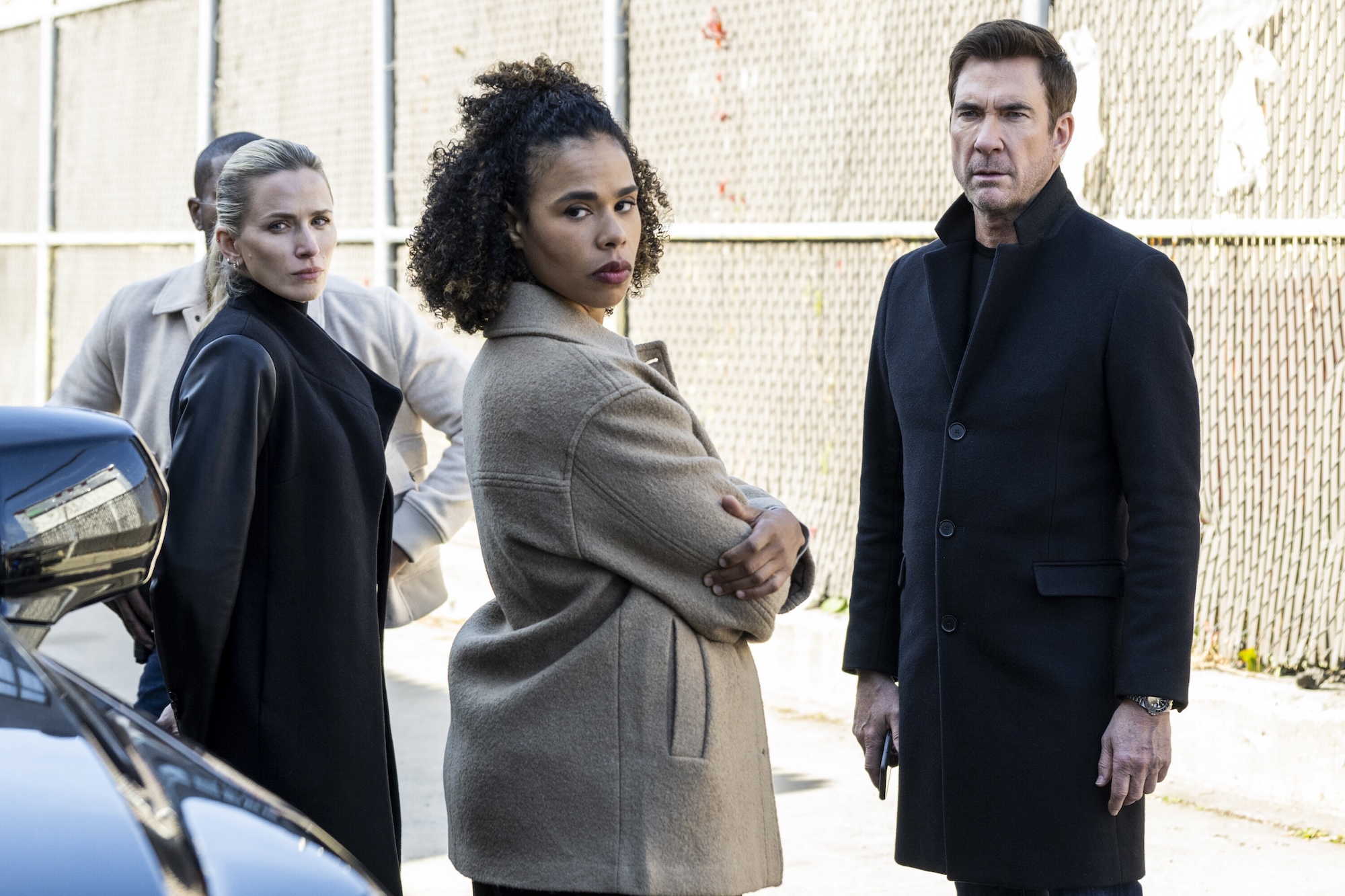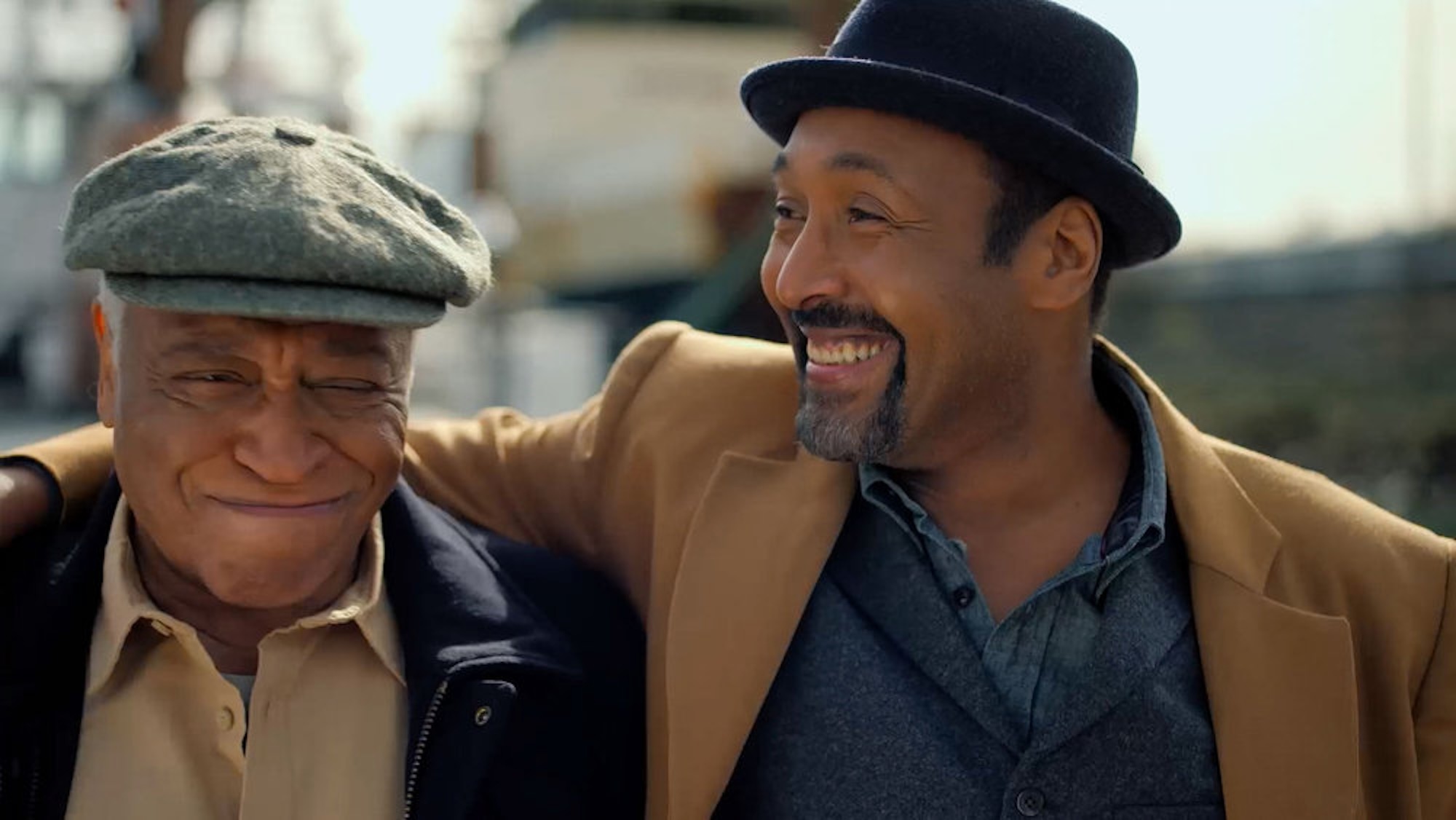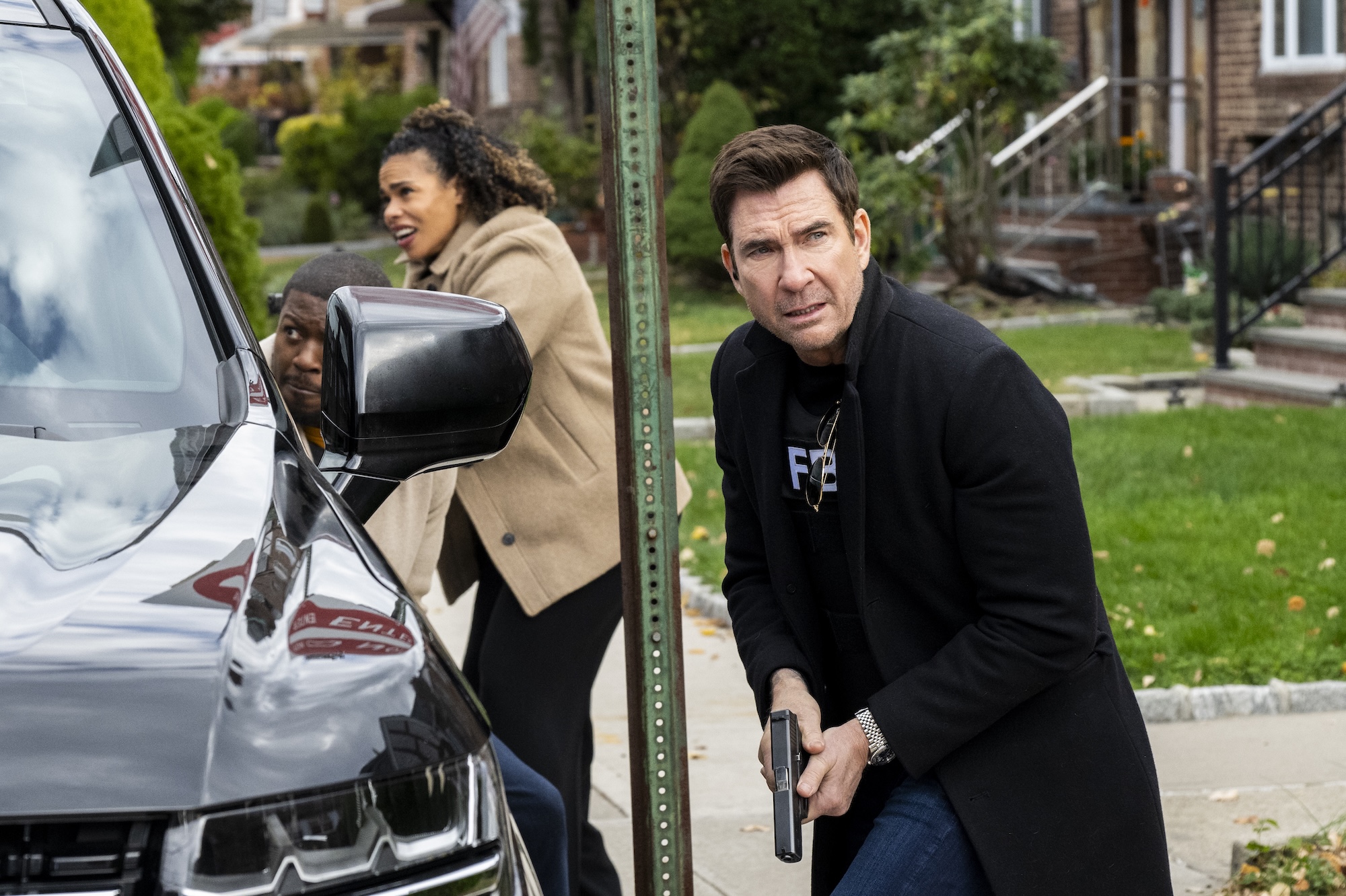Not Another Presidential Biopic – The Ringer
Earlier this month, Dennis Quaid went on The Joe Rogan Experience to promote Reagan, a long-delayed historical drama about the life and times of the 40th American president. (The film was originally shot in 2020 and had to shut down production due to COVID-19.) Like many of Rogan’s guests, Quaid was willing to grind a few axes, including complaints about the scourge of political correctness and the capriciousness of celebrity cancel culture. But he also took pains to insist that he didn’t consider himself any kind of political radical. “I’ve always believed in the pendulum of politics and culture,” said Quaid. “Republicans and Democrats need each other. They keep each other from going too far.”
Considering Quaid’s endorsement of Donald Trump—“He’s my asshole,” the actor told Piers Morgan—it’s fair to assume his pendulum swings more consistently to the right these days. Ditto his inevitable Reagan costar Jon Voight, who remains the most outspoken Hollywood Republican this side of James Woods; in a casting coup that seems to play on the actor’s real-life shift from left-wing activism to full-on MAGA advocacy, Voight plays a former KGB agent reflecting on his assignment shadowing the Gipper at the height of the Hollywood blacklist. (“I was happy to learn that there was a part I could play,” the actor told Fox News.) It’s a juicier part than Voight’s previous outing for director Sean McNamara in 2007’s Bratz, a legendary debacle that isn’t even the weirdest title on the director’s résumé, which also includes 3 Ninjas: High Noon at Mega Mountain (starring recent Republican National Convention speaker Hulk Hogan).
There’s probably an interesting analysis to be made of the 20-plus features that McNamara—who publicly leans into his religious beliefs while professing to be a registered Democrat—has churned out since 1989. By virtue of its subject matter and leading man, Reagan is easily his highest-profile title to date. The trailer makes it look slick and shameless, an inventory of great-man-of-history clichés filled with speeches, sunsets, and dodgy CGI depicting the infamous 1983 attack on Korean Air Lines flight 007. “I am about to start the biggest war of the 20th century, and I’m not going to fire a single shot,” drawls Quaid, sounding not only like the Gipper but also like his fellow actor turned politician Clint Eastwood. Not that the project’s triumphant tone should be a surprise: The script is based on a book by right-wing think-tanker Paul Kengor titled The Crusader: Ronald Reagan and the Fall of Communism, which conjures up the image of its namesake tearing down the Berlin Wall with his bare hands, brick by brick.
Chances are that the right-wing commentators lining up to praise the film, as well as the conservative celebrities who swarmed its L.A. premiere, would say something about turnabout being fair play. The last time that a group of filmmakers tried to tackle Reagan’s story, the result was the controversial 2003 television miniseries The Reagans, commissioned by CBS as a sweeps week behemoth. Those aspirations were scuttled when portions of the show’s script leaked online, hinting at twin negative depictions of Ronnie and Nancy (played by James Brolin and Judy Davis). Not only did the series present the first lady as a power-grabbing Lady MacBeth trying to stage-manage her husband’s descent into Alzheimer’s, but the president also came off as confused and callous, shrugging off the suffering of AIDS patients by declaring, “They who live in sin will die in sin.”
To paraphrase Reagan’s former VP: Such aggression would not stand. In a moment when the real-life Reagan was in poor health—and certain smirking figureheads of the late-night comedy elite were outlining reality’s “liberal bias” while using a sitting Republican figurehead for target practice—The Reagans was deemed too hot to handle by network executives, who shunted it off to Showtime, where it would reach a much smaller audience. “Although the mini-series features impressive production values and acting performances,” read a letter posted on the CBS website, “we believe it does not present a balanced portrayal of the Reagans for CBS and its audience.”
Beyond its strange, seemingly intentional evocation of Fox News’ 21st-century motto, “fair and balanced,” this statement drew a bead on Reagan’s uniquely Teflon image. There have been plenty of movies about real-life American presidents emanating from both sides of the aisle, a few of which rank among the most evocative and accomplished films of their respective eras. Before Steven Spielberg slyly mythologized his own youthful encounter with John Ford at the end of The Fabelmans, he placed himself in conversation with his hero via 2012’s Lincoln, which pulled double duty as an election year allegory about the importance of bipartisan collaboration and a spiritual sequel to Ford’s 1939 classic Young Mr. Lincoln. A stealth contender for the best movie of a legendary Hollywood bumper crop, Ford’s film remains a sublime slice of Americana—a sort of superhero origin story outlining the Great Emancipator’s salad days as a trial lawyer. The casting of Henry Fonda, unmistakably the most virtuous leading man of his era, helped Young Mr. Lincoln access a patch of moral high ground far removed from D.W. Griffith’s much more ambivalent depiction several years earlier. Fonda’s acting evokes an innate sense of decency, especially when he’s staring down an unruly lynch mob. “By jing, that’s all there is to it,” he declares at one point. “Right and wrong.”
In terms of the quality of performers employed to play him, Honest Abe sits in the pole position as far as presidents go. It’s hard to top the one-two punch of Fonda and Daniel Day-Lewis, whose Oscar-winning performance for Spielberg is like the flip side of his demonic nation builders in Gangs of New York and There Will Be Blood. Other candidates include Cliff Robertson’s strapping evocation of John F. Kennedy in the 1963 combat thriller PT 109—a part he earned only after JFK offered an official seal of approval—and a whole panoply of cinematic Richard Nixons, a few of whom remain unimpeachable. Choose your fighter: There’s Philip Baker Hall’s booze-soaked tour de force in Robert Altman’s scintillating Secret Honor, Anthony Hopkins’s regally Shakespearean interpretation in Oliver Stone’s Nixon, and Dan Hedaya’s jowly cartoon brilliance in Dick. As for the other end of the spectrum, Lyndon B. Johnson was once played by Randy Quaid, who likely has his ticket for Reagan already.
For every direct depiction of a president in movie history, there is a thinly veiled doppelgänger. When Fonda played the commander in chief in 1964’s white-knuckle atomic thriller Fail Safe, he was not only channeling his persona as Lincoln but also evoking Kennedy as a kind of tragic structuring absence; while Primary Colors is a parable of the Bill Clinton years, it gives John Travolta’s handsy gubernatorial hopeful a different name (ditto Jeff Bridges’s sly Clinton manqué in The Contender). Quaid even got in on the act in 2006’s American Dreamz, playing a faintly Dubya-esque president in the throes of a personal crisis (his solution is to go on television and judge a Simon Cowell–style musical competition show). There are also plenty of movies that have let presidents play themselves via archival or newsreel footage, most effectively in Alan J. Pakula’s All the President’s Men, which consistently frames Robert Redford’s and Dustin Hoffman’s pavement-pounding Washington Post heroes against real television footage of Tricky Dick. (A more recent and daring example: Brad Pitt puncturing American exceptionalism over footage of Barack Obama’s 2008 inauguration in Andrew Dominik’s scabrous thriller Killing Them Softly.)
When it comes to Reagan, however, there is a bit of a paradox. Despite being America’s first (and so far only) movie star president—and directly yoking his administration to the multiplex on multiple fronts, including nicknaming a proposed missile defense system “Star Wars,” joking about seeking diplomatic solutions from the Rambo franchise, and quoting Dirty Harry to critics of his tax plan—he has scarcely been impersonated on-screen. The symbolic links between Reagan and Hollywood have been mapped over the years by many scholars and commentators, chief among them ex–Village Voice critic J. Hoberman, whose 2019 book, Make My Day: Movie Culture in the Age of Reagan, slots alongside his earlier volumes An Army of Phantoms and The Dream Life as one of the 21st century’s best pieces of long-form pop-cultural analysis (and is itself an inescapable reference point for my own essay series States of the Union, which ran on The Ringer in the summer and fall of 2020). In essence, Hoberman believes that Reagan specialized in skillfully packaging reactionary ideas and policies for an electorate ready to receive them, and that he did it partially by exploiting the iconography of classic Hollywood—by “conjur[ing] up an idealized ’60s almost out of whole cloth, vague memories, old television, and old movies.”
To say that the overwhelming majority of American cinema in the 1980s was made in Reagan’s image isn’t about the movies’ explicit political alignment—or even necessarily artistic ignition—so much as their underlying tension between airbrushed fantasy and sinister reality. The most resonant movies of the decade, from Poltergeist and Red Dawn to Blue Velvet and The Stepfather, vibrated on that precise frequency; my own pick for the keynote title of the Reagan era would be John Carpenter’s trickle-down sci-fi allegory They Live, whose hero catches sight of a glad-handing, Reaganesque pol on a news broadcast and sees him for who (or what) he really is: a moldering but well-coiffed ghoul hiding in plain sight, spouting utopian platitudes as a distraction from ulterior motives of world domination.
There’s a similar scene in Robert Zemeckis’s Back to the Future Part II, which features a bizarre Max Headroom–style AI version of Reagan smiling beatifically out from a TV screen to declare that “it’s always morning in America, even in the afternoon,” an extension of the original film’s running joke about the cognitive dissonance generated by his presidency in the first place. (Hoberman writes superbly about Back to the Future in Make My Day, probing its counterintuitive mix of jokey ’50s pastiche and apparently earnest Norman Rockwell–style nostalgia to deduce that the film is ultimately about nothing more than preserving the status quo.) The most vivid impersonation of Reagan from that period, however, comes from a 1986 Saturday Night Live sketch featuring Phil Hartman as a deceptively brilliant, code-switching version of the then leader of the free world titled “President Reagan, Mastermind.” The premise—hatched by the bipartisan writers room coalition of Jim Downey, an iconoclastic genius who studiously eschewed blue-state crowd-pleasing for decades, and Al Franken, who literally went on to hold elected office as a left-leaning Democrat—was not only that its subject contained multitudes, but that his doddering, squint-eyed charisma was a front for a cool and calculating intellect. Welcoming an adorable Girl Scout into the Oval Office to celebrate her selling a record number of cookies, Hartman’s Reagan enacts a patronizing pantomime of (elder) statesmanship, telling his guest that he could use her marketing savvy on Capitol Hill. After the kid leaves and the media circus disperses, he snaps back into action, drilling his inner circle about his administration’s geopolitical gamesmanship (“The red countries are the countries we sell arms to … the green countries are the countries where we wash our money!”), quoting great thinkers (“Power without knowledge is power lost!”), and effortlessly balancing the budget without the use of a calculator. By the end of the scene, he’s speaking flawless German into the phone as the markets open overseas. “I’ve been doing it this way for six years,” he sighs to himself. “Why should I change now?”
It’s a thin line between satire and self-parody, and more sophisticated directors than McNamara have tripped all over it. Reagan looks a bit like a berserk Saturday Night Live sketch, or maybe a biopic parody à la Walk Hard (proposed title: That’s So Reagan). In the end, it’ll likely become an election year footnote behind Ali Abbasi’s The Apprentice, which dramatizes Donald Trump’s sentimental education at the hands of his mentor Roy Cohn—provided, of course, that that film comes out at all. Despite earning strong reviews at Cannes, The Apprentice is still without a release date, largely because former Washington Commanders owner Dan Snyder—a staunch Trump supporter who invested $5 million in the project—was outraged by the content and subsequently tried to block any sort of distribution deal. (The movie is conspicuously absent from fall festivals like NYFF and TIFF.) Back in May, Abbasi responded to threats of litigation from his unauthorized subject by offering to screen the film privately for Trump: “I don’t necessarily think that this is a movie he would dislike,” said the Iran-born director. He’s probably kidding, although there’s no accounting for taste: After all, the one movie we know for sure that Trump screened at Camp David is The Greatest Showman.
Adam Nayman is a film critic, teacher, and author based in Toronto; his book The Coen Brothers: This Book Really Ties the Films Together is available now from Abrams.



